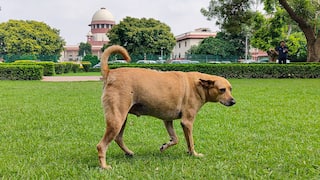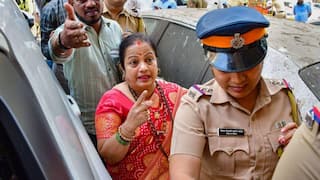Why Mamata Banerjee's Electoral Prospects In Tripura, Meghalaya Are Limited And Will Damage Oppn More

The politics of the Trinamool Congress under the leadership of party supremo Mamata Banerjee has traditionally been focused on West Bengal, and the party in the state is currently under enormous strain due to multiple corruption charges implicating its top leadership. Mamata has made it obvious that her nephew Abhishek Banerjee is now her successor, and under his leadership the party has launched its ambitious Northeast plan. Even though the TMC suffered a crushing defeat in the 2022 Goa assembly elections, Mamata sees the impending polls in Tripura and Meghalaya as an opportunity to advance into national politics.
Mamata Banerjee's political future in the Northeast is not particularly hopeful for a variety of causes and constraints. At present, the greatest challenge before the TMC is to demonstrate how credible the new-age leadership under Abhishek Banerjee can become. The TMC's political ambitions in the Northeast are not new, but this is the first time that Mamata Banerjee's party is contesting elections with full force in Tripura and Meghalaya.
Lack Of Organisation In Tripura
Tripura has the largest Bengali population after West Bengal. TMC has been attempting to make inroads in the state for the last eight years. Abhishek Banerjee introduced the party's Tripura initiative with much excitement. But the party has till now relied primarily on Bengal-based leaders. Several prominent leaders of the TMC have visited the state frequently over the past few months, but according to party sources it has not been able to build a strong organisation with connection to the grassroots. The TMC's Tripura endeavour had three main components. First was sending teams from the election management agency I-PAC, taking leaders from various political parties such as Sudip Roy Burman, who ultimately did not join the TMC but the Congress and won, and allying with indigenous political leaders such as TIPRA Motha chief Pradyot Bikram Manikya Deb Barma.
Sudip Roy Barman and Ashish Shah left the Congress to join the TMC in 2016. However, the party failed to retain these individuals. They joined the BJP and then went back to the Congress. This shows a lack of organisation in TMC. When Abhishek began his mission in Tripura, the party leaders attempted to get Burman along, but were unsuccessful. The TMC was incapable of establishing a local chapter of the party. The TMC ousted its state president Subal Bhowmik a few months ago, and the organisation has not had a leader since. Prior to 2021 West Bengal Assembly elections, former minister Rajib Banerjee defected from the party and joined the BJP, thus destroying his credibility in Bengal. Following the defeat of the saffron party in Bengal elections, Banerjee returned to the TMC and is now in charge of Tripura.
Meanwhile, the party could not engage in alliance talks with Deb Barma due to his insistence on Greater Tipraland. The party realised that if it supported such a demand in Tripura, there would be unrest in Bengal over the desire for a separate Gorkhaland or possibly North Bengal. In the meantime, following the partnership between the CPI(M) and the Congress, the TMC's prospects as the leading opposition party also appear dismal. Nevertheless, any advances made by the TMC in Tripura will be detrimental to this partnership.
Credibility Challenge in Meghalaya
As many as 12 out of 17 Congress MLAs from Meghalaya defected to the TMC in a coup d'état last year, making TMC the second-largest political party in the state. Despite the overnight coup, however, the party has a significant credibility problem due to its lack of awareness of the state’s diversity, dependence on Sangma, and lack of a credible historical record. Mukul Sangma of the Meghalaya TMC is a formidable leader, although his political influence is restricted to the Garo Hills region. Currently, the party lacks support in the Khasi and Jaintia Hills regions.
Mamata Banerjee and Abhishek Banerjee visited the state and spoke to the people. The party also released an ambitious 10-point election platform with state-specific pledges, such as the creation of 5 lakh employment opportunities over the next five years. However, Mamata Banerjee's TMC faces a credibility crisis.
The people of Meghalaya view the party as a Kolkata-based and Bengali-centric political party. In the shifting social and demographic conditions of the state, it will be difficult for the TMC to reach the greater population. The party has struggled in recent months to maintain the momentum it earned after the split of the Congress. The TMC does not have a distinct voter base in the state. The majority of the electorate that would vote for Mamata Banerjee's party consists of the Congress voters. Mamata’s Meghalaya politics will only further disperse the Congress.
ALSO READ | Tripura Election: Nadda Kicks Off BJP Campaign
Choosing The Path Of Least Resistance Over Productive Politics
The TMC's politics is currently harming the opposition parties in the Northeast. Mamata Banerjee has been speaking about opposition alliance, and also saying that the opposition party that is strongest in a particular state should fight contest against the Bharatiya Janata Party in that state and other parties should help them. However, Mamata has so far failed to demonstrate the practise-what-you-preach principle. In Goa, TMC failed to win any seat but it managed to damage Congress's chances — like AAP did in Gujarat. In the northeastern states of Meghalaya and Tripura, where the TMC is gaining ground, the opposition is suffering. It is true that the TMC is weak in both states, and the party is attempting to make inroads riding on voters' displeasure with opposition parties such as the Congress in Meghalaya and the Left in Tripura.
The TMC does not seem to have learnt the lesson yet from its election failure in Goa — that it will be unable to have an electoral impact in a new state without establishing a grassroots organisation. In Meghalaya, the party imitated the BJP by dismantling rival parties and recruiting their leaders. History shows people don't usually accept such short politics of poaching and building organisations on the basis of defectors.
Mamata's political ambitions are well known. But the TMC should have concentrated on West Bengal for now. The Northeast is among the most complicated and diverse regions. It appears difficult for the TMC to make a difference and become the dominant opposition political party. The party might win some seats in Meghalaya, but it would be difficult to maintain this support without a robust grassroots organisation. Meanwhile, the opposition will be harmed by the TMC's political approach, and it will be interesting to see how the Congress and other opposition parties intend to deal with it in the 2024 general elections.
The author is a Columnist and Doctoral Research Scholar In Media & Politics.
[Disclaimer: The opinions, beliefs, and views expressed by the various authors and forum participants on this website are personal and do not reflect the opinions, beliefs, and views of ABP News Network Pvt Ltd.]


























